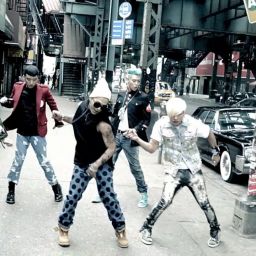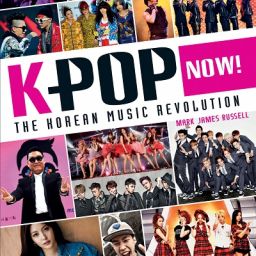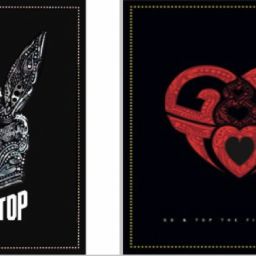
[youtube=http://www.youtube.com/watch?v=-Gdw1KiIs_8]
Today, the BBC posted an article entitled The Dark Side of Korean Pop Music. Interestingly, this is only a couple of months after the Guardian had an article on K-pop: how South Korea turned round its music scene (subtitled: Strict anti-piracy laws, pop production houses and clever marketing have helped this struggling market thrive once more).
So what is one of the most important negative (or positive, depending on the article!) aspects of Korean pop music? The highly manufactured aspect of K-pop. Aspiring performers are taken on by labels, as trainees, where over time, they hope to be added to a group.
K-Pop is expensive to produce. The groups are highly manufactured, and can require a team of managers, choreographers and wardrobe assistants, as well as years of singing lessons, dance training, accommodation and living expenses.
…
Companies such as SM Entertainment and Play Cube Entertainment tapped into the 360 degree model way before the major labels – being independent record labels, talent agencies and publishers with their own academies where they groom young teenagers to be pop stars.
[youtube=http://www.youtube.com/watch?v=aUiMaz4BNKw]
Or as Mark Russell, the author of Pop Goes Korea, puts it:
A big company like SM Entertainment (or JYP or whoever) will likely have 50 or 70 kids in training at any one time. That’s a lot of ramyeon noodles and dance instructors and real estate to pay for. The big companies especially need a steady revenue stream to pay for all of that. So it is no surprise the kids are treated like commodities, like links in the supply chain. After all, the supply of young hopefuls is endless. The number of successes available is very small.
[youtube=http://www.youtube.com/watch?v=AAWqnA8PdcY]
But how is this really different than the manufactured pop anywhere else — with the exception that the timeframe for training before performance is extended? And this is pop taken to its most pop-py — as shown in these videos from SNSD/Girls Generation, Super Junior (yes, there were thirteen members of the group), SHINee, 2ne1, and 4 Minute (mentioned in the BBC article performing in malls).
[youtube=http://www.youtube.com/watch?v=roughtzsCDI]
One of the major differences between Kpop and music elsewhere is how much sales are dependent on appearances on music shows, similar to Top of the Pops and the former MTV live performance shows. The general lifespan for Kpop groups is not long, and there have even been stories about former Kpop singers going to law school in the states. Oddly enough, even in this highly manufactured world, there are more groups that have recognition than are found in U.S. music that seems to be only focused on A-list music. Can anyone honestly say that groups like Baroness, Converge, Dillinger Escape Plan, and Genghis Tron have even the chances for mainstream success that, bleh, nu metal had?
[youtube=http://www.youtube.com/watch?v=f07vXjZkfjk]
On the other hand, even within the music factory town of Korean pop, there are those that can find success. Most notably, in rap/hiphop, such as Drunken Tiger (and … his crew):
Hip hop is good example, as groups and performers like Epik High, Tasha (Yoon Mi-rye), and Drunken Tiger have escaped the management system and had great success on their own while (most importantly) making better music. With iTunes, Soundcloud and other online music portals, no band needs to be controlled by managers/labels anymore, like they were in the age of terrestrial TV dominance and record stores.
That isn’t to say there aren’t potential issues with Kpop, such as the pay for performers. Or how hard they are pushed by their labels to perform (as was recently questioned by many fans of Girls Generation during the recent Japanese tour and Paris concert). But many of the problems with the Korean music industry are true for the worldwide music industry, where audiences want new music, but not too different, and don’t want to pay (too much) to purchase it. But that is something that Korean pop — with its strong fanclubs — has an advantage, by supporting both live performances and tons and tons of merch.
[youtube=http://www.youtube.com/watch?v=NJUjrzKYCC0]








[…] We write a lot about hallyu (exported Korean pop culture) on this blog, and K-pop has really started to hit the mainstream U.S. press this year, including a write-up in Pitchfork and two of Spin Magazine’s best of 2011 albums were by Korean artists (2ne1 & Girls Generation — despite the fact that the Girls Generation album was at the time a Japanese import only album!) — and an article in Harvard Business Review. And there were even showcase shows by some of the major Kpop labels in New York earlier this year — and 2ne1 won MTV Iggy’s “Best New Band in the World”. […]